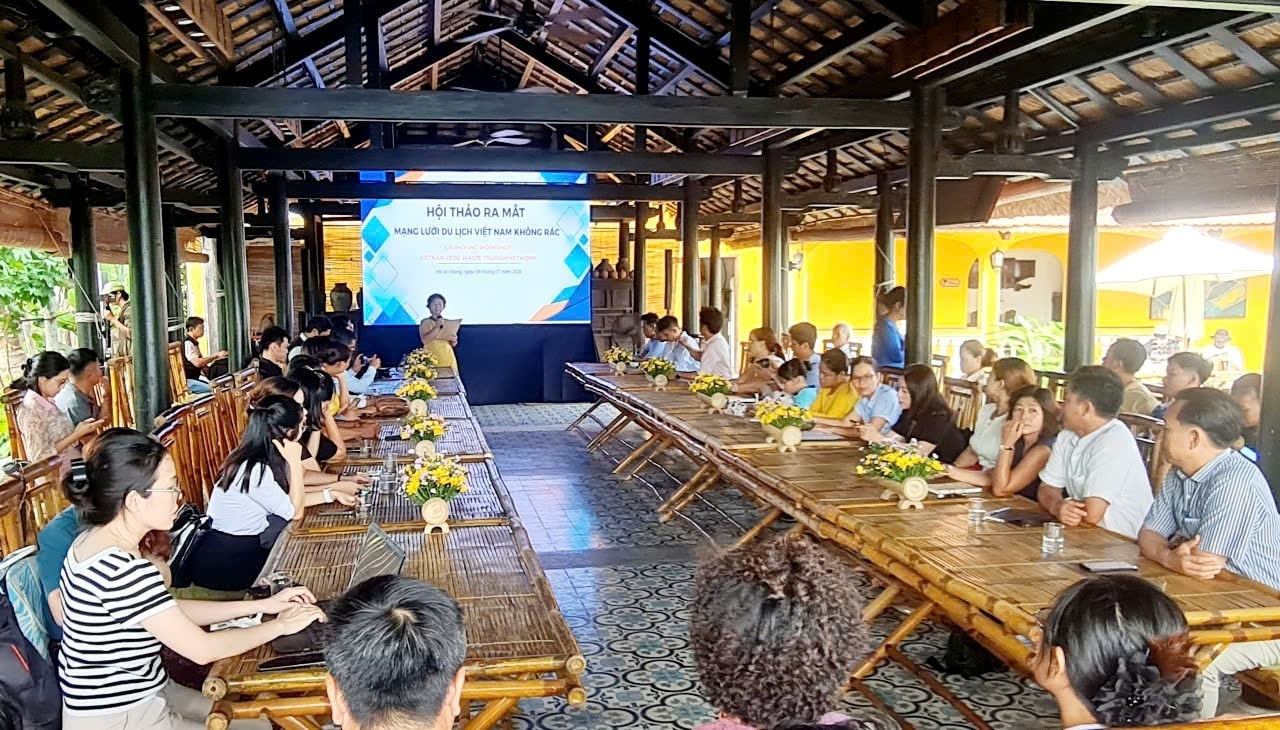Zero waste tourism - A strategic opportunity for Da Nang
DNO - Da Nang tourism is facing a strategic opportunity of turning “zero plastic waste” into an operational standard and brand positioning.

As Vietnam's tourism industry enters a post-pandemic recovery cycle, the “green” factor has gone beyond the role of a marketing slogan to become a market criterion and a measure of destination reputation.
The Tourism and Sustainable Development 2025 report by Booking.com shows that the awareness and behavior of Vietnamese travelers are clearly changing in the direction of "green". Accordingly, 41% prioritize reducing plastic waste, 56% want improved waste management, and 58% are committed to recycling and limiting disposable items during their trips.
The survey also indicates that 62% consider sustainable tourism as an important criterion when planning a vacation, and 90% tend to choose sustainable tourism options in the next 12 months.
The abovementioned figures confirm that early adoption of the green trend will be a competitive advantage for destinations and tourism businesses.
Through many years of action, from banning the use of plastic bags in Cu Lao Cham - a UNESCO World Biosphere Reserve since 2009 to the organization of a workshop with UNESCO in 2019, former Quang Nam Province has laid the foundation for zero-waste tourism with training, survey, and practice activities.
The initial result saw 33 businesses and tourist attractions certified as Quang Nam Green Tourism. Though modest, this number is enough to foster meaningful change.
A milestone came on July 9, 2025 when the Vietnam Zero Waste Tourism Network was officially launched in Da Nang, marking an important step toward responsible, environmentally conscious, and sustainable tourism.
The network aims to connect businesses, suppliers, communities and tourists, support experience sharing, standardize processes, promote policies and create market opportunities.
Its target is to incubate at least 100 pioneering businesses in waste management by 2030 and achieve net-zero emissions by 2050.
Waste management expert Vu My Hanh emphasizes that zero waste tourism does not stop at reduction, but rather redesigning operations to minimize waste generation, increase reuse and recycling, and divert waste away from landfills.
If effectively implemented, this strategy could position Da Nang as a unique “green” destination where natural beauty blends with clean, tidy spaces and community responsibility, contributing to affirming its competitive position on the regional tourism map, she adds.
